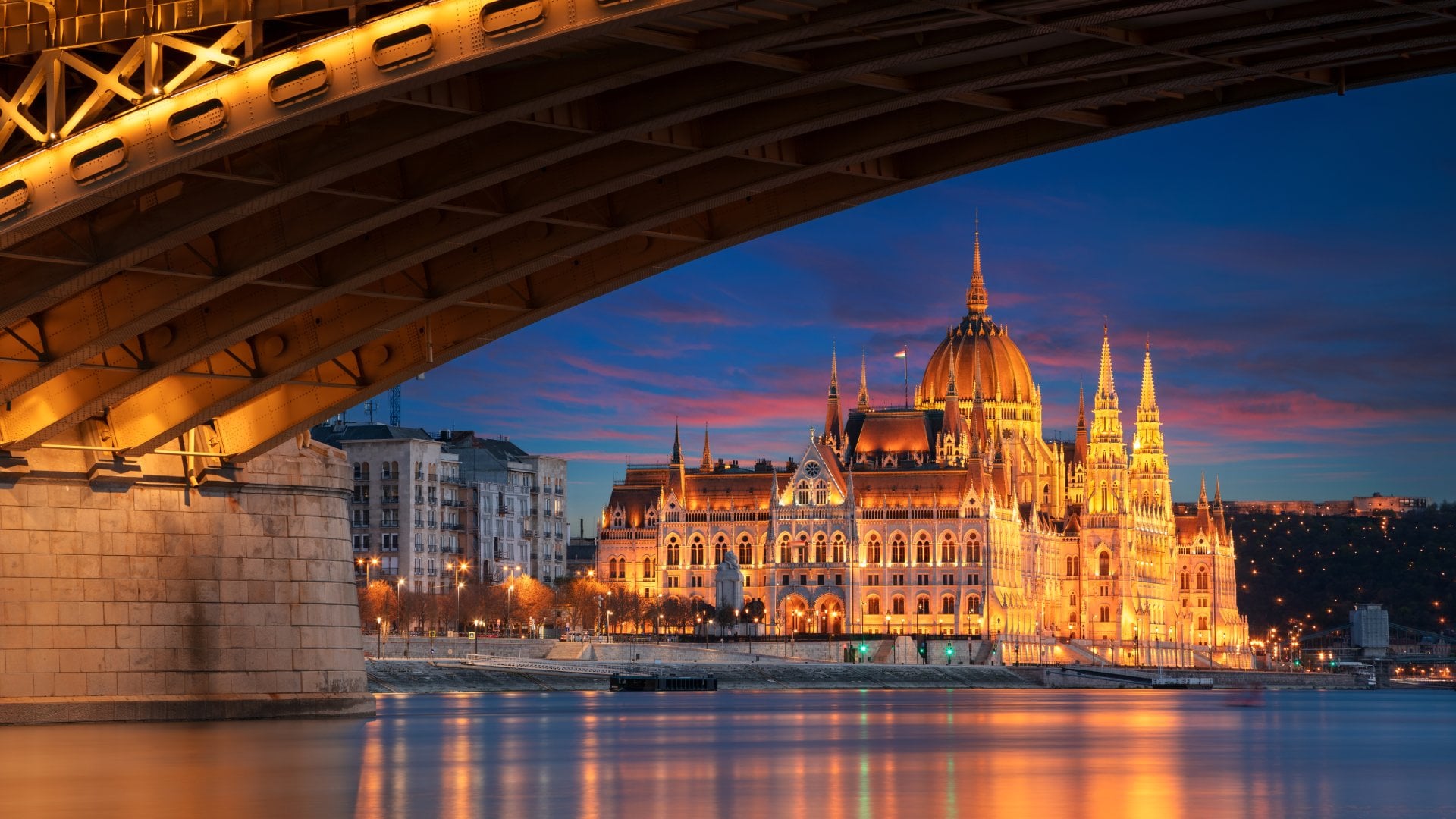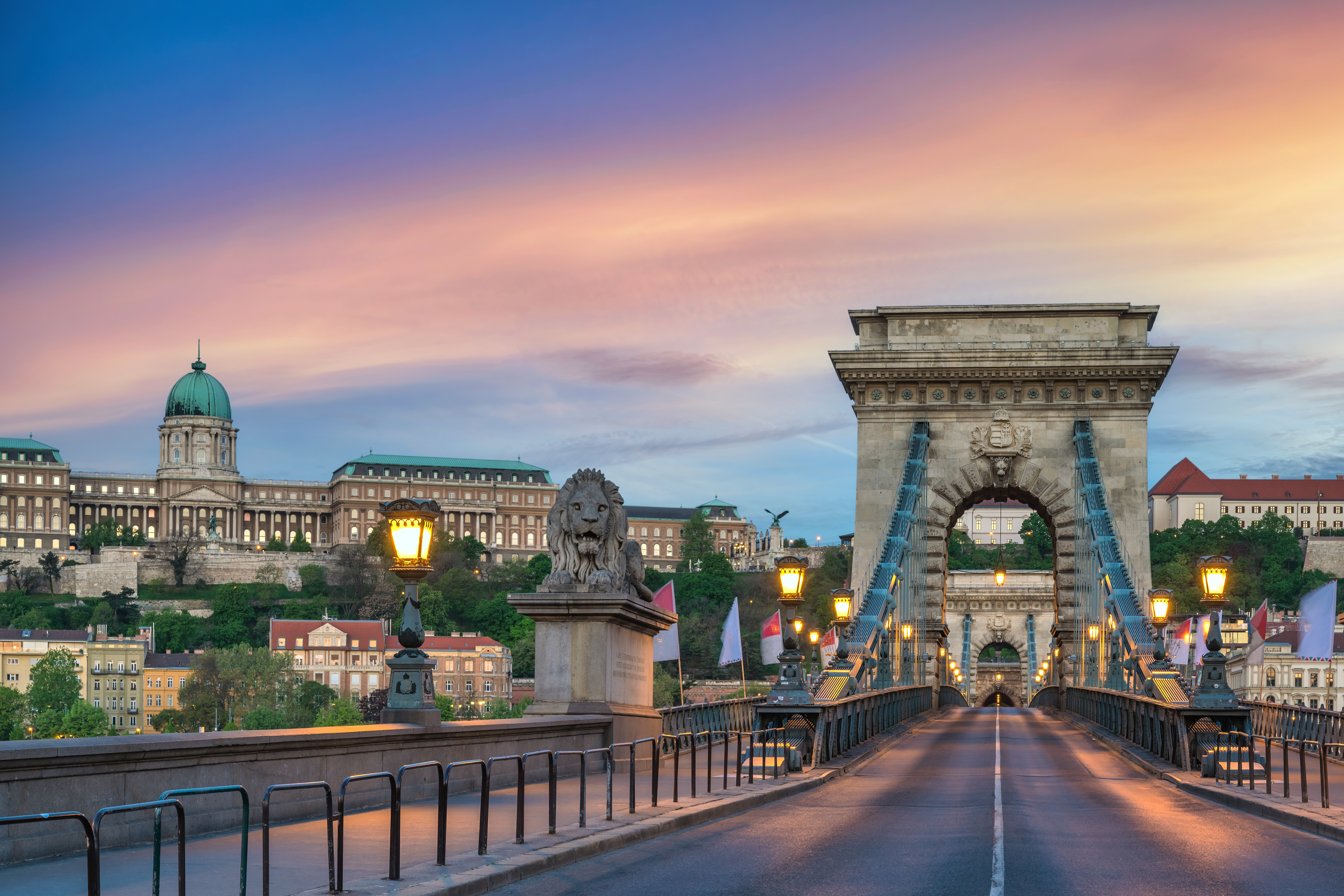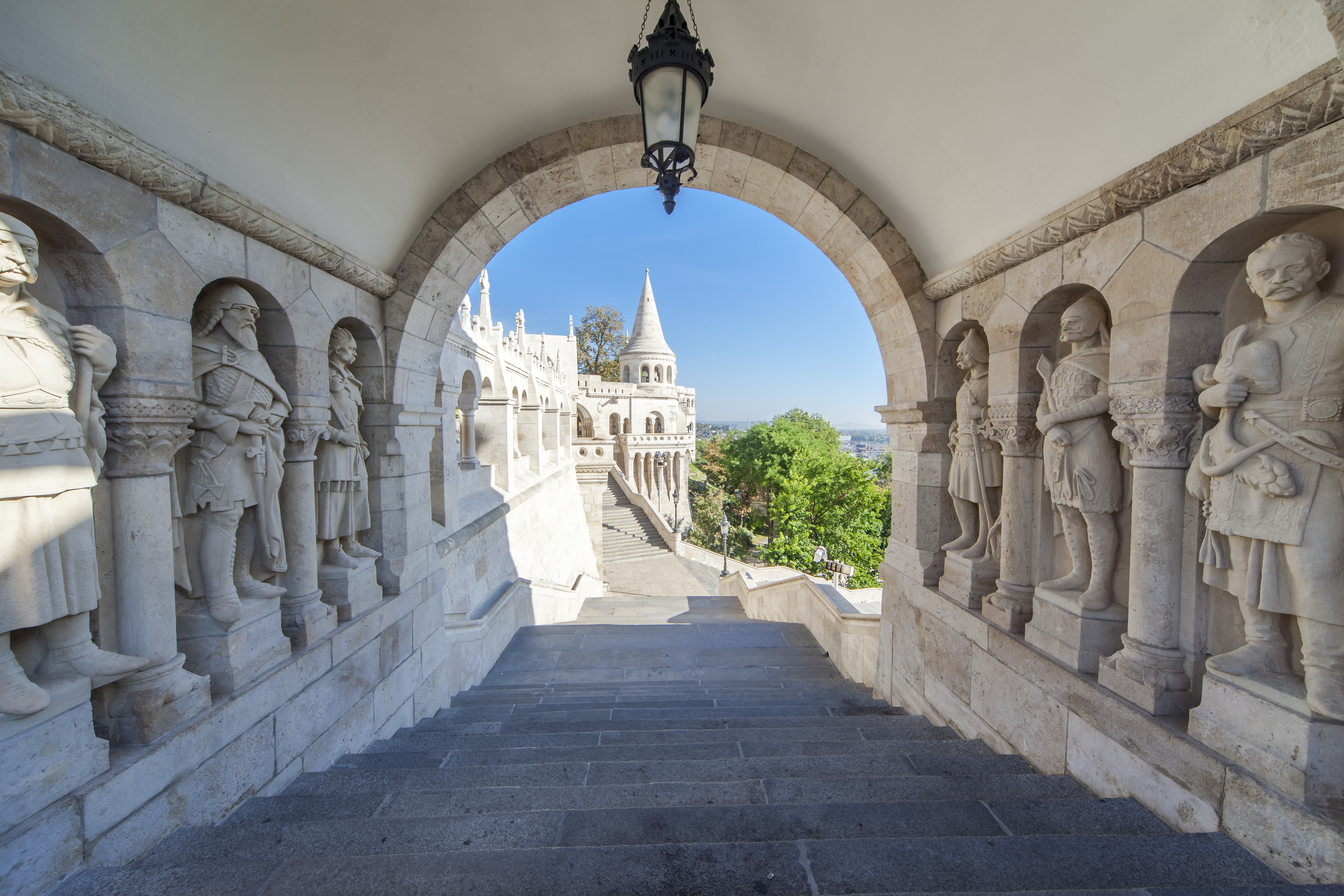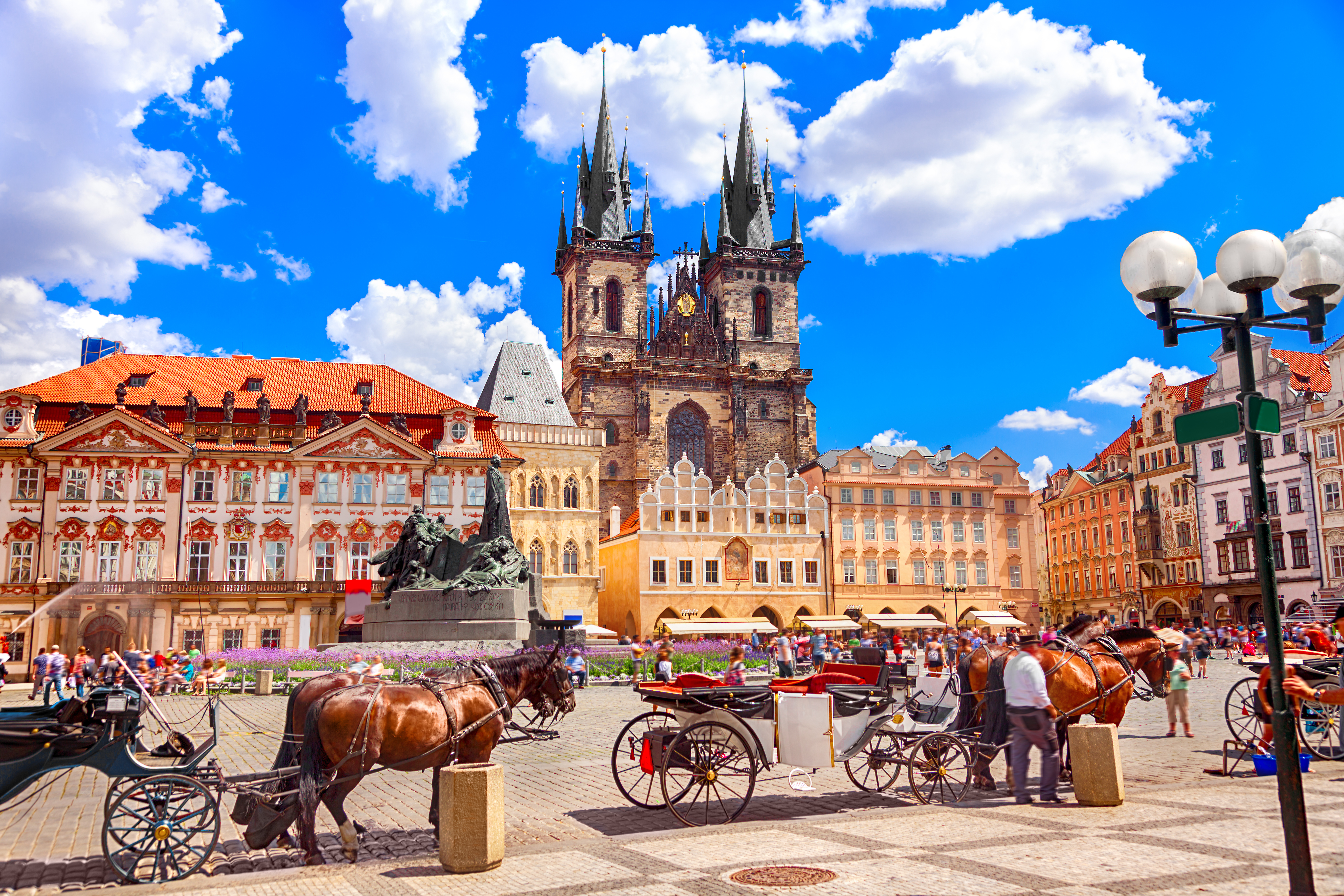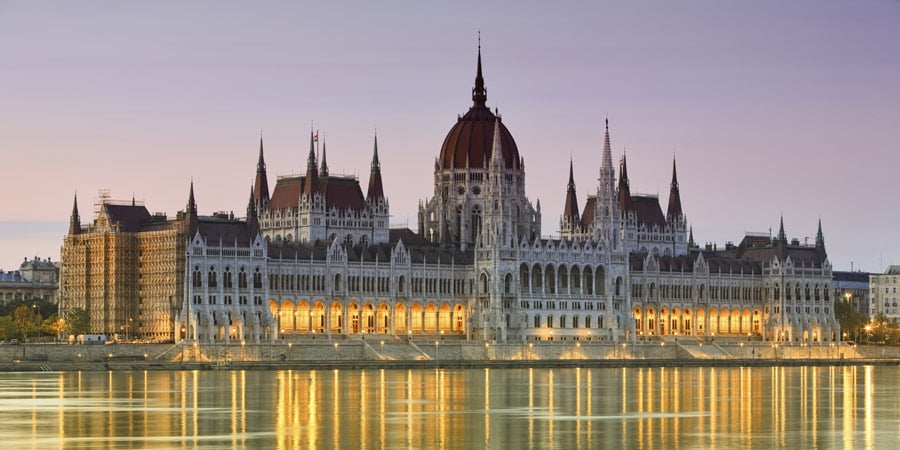US and Canadian citizens can enter Hungary (Schengen Area) visa-free for up to 90 days in any 180-day period. Your passport should be valid at least 3 months beyond your planned Schengen departure date. From 12 October 2025, the EU’s new Entry/Exit System (EES) will take fingerprints and a facial image on arrival; no advance application is needed. ETIAS (a paid online travel authorisation) is planned to start in 2026—check timing before you go. If you’re carrying over €10,000 (or equivalent), declare it. Always confirm entry rules close to departure.
Discover Tailor-Made Hungary Vacations
Uncover Hungary’s thermal spas, historic cities, and vibrant cultural traditions.
Hungary offers an enticing mix of natural beauty and heritage. Explore Budapest’s thermal baths and grand boulevards, cruise the Danube, and visit towns like Eger and Pécs, where history, architecture, and wine culture create unforgettable experiences.
Featured Highlights
- Relax in Budapest’s famous thermal baths and spas
- Admire Buda Castle, Parliament, and Danube panoramas
- Sip bold red wines in Eger and Balaton vineyards
- Discover Pécs’ Roman, Ottoman, and baroque treasures
- Explore Lake Balaton’s beaches and waterside resorts
- Experience Hungarian folk music, food, and festivals
Featured Hungary Trip Ideas
Hungary blends spa culture, history, and timeless river landscapes.Travellers in Hungary will find a country where history and relaxation go hand in hand. Budapest, split by the Danube, charms with its thermal baths, striking Parliament building, and Buda Castle’s hilltop views. Outside the capital, Lake Balaton offers sandy beaches and vineyards, while Eger is renowned for its baroque architecture and red wine. Pécs showcases Roman ruins, Ottoman mosques, and a thriving arts scene. For wellness seekers, Hungary’s spa traditions stretch back centuries, from mineral-rich springs to grand bathhouses. Cultural highlights include folk music, hearty cuisine, and lively festivals. Whether soaking in a thermal pool, sipping wine in a countryside cellar, or strolling riverfront promenades, Hungary captivates with its depth and diversity.
Eastern Europe Sampler: Budapest, Vienna & Prague
Prague, Vienna, Schönbrunn Palace, Budapest, and Fisherman’s BastionTimeless Elegance: Prague & Budapest
Budapest, Fisherman’s Bastion, and PragueEscape To Budapest
Budapest and Fisherman’s BastionPrague, Vienna & Budapest: Central Europe Journey
Vienna, Schönbrunn Palace, and PragueImperial Cities Highlights: Vienna & Budapest
Budapest, Fisherman’s Bastion, Vienna, and Schönbrunn PalaceDon't see the
perfect trip idea?
Request a custom quote.
Turn your travel dreams into reality with Goway. Our customized vacations take travellers to all corners of the world.
What do Goway's travellers say?
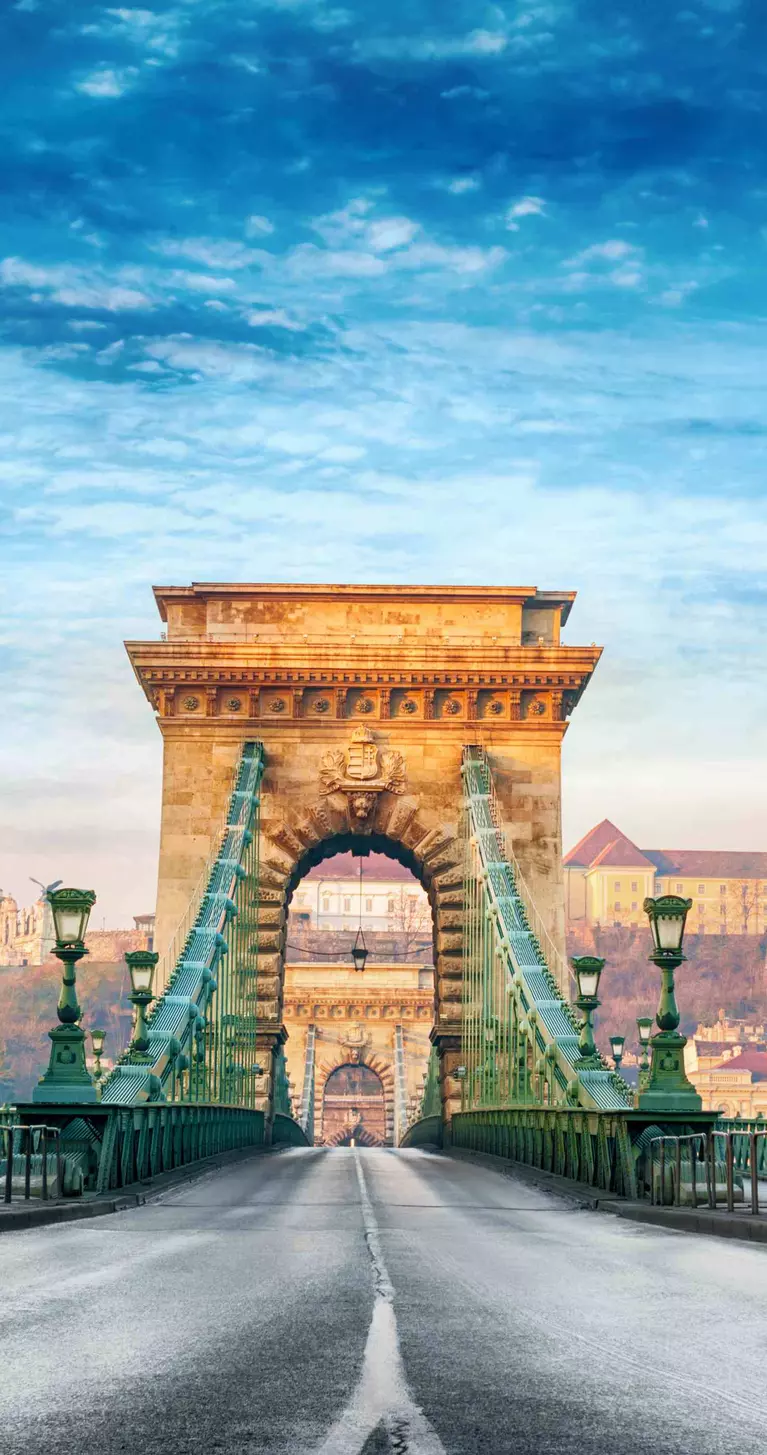
Get to know Hungary before you go.
Best Time to Visit
Hungary is a country of many layers, where each season and region offers a distinct way to experience its history, landscapes, and culture. From lively festivals in Budapest to quiet walks along vineyard-covered hills, the country welcomes travellers with both vibrancy and tranquillity.
In summer, the shimmering expanse of Lake Balaton becomes a favourite escape. Just an hour from the capital, its 200-kilometre shoreline mixes beaches, resorts, and historic gems like the Festetics Palace in Keszthely. The northern hills, known for wine-growing, invite long hikes and tastings among protected landscapes. For those drawn to wilderness, Bükk National Park in the north shelters red deer, wild boar, and even brown bears in its remote corners, making it a haven for nature lovers.
Hungary’s history is ever-present, and nowhere more striking than the House of Terror Museum in Budapest. Once the Soviet secret police headquarters, it now memorializes the struggles of the 1956 uprising, confronting visitors with the harsh realities of life under oppression. Other historic highlights include Eger Castle, with sweeping views and nearby vineyards in Szépasszony Valley, and the Baroque streets of Győr, home to an 11th-century basilica honoured by Pope John Paul II.
Elsewhere, Debrecen’s Great Forest Park offers a green retreat, while Pécs captivates with its Early Christian Mausoleum and medieval Barbican. Almost everywhere in the country, travellers can unwind in Hungary’s famed thermal spas, a reminder of its centuries-old bathing culture.
Whether it’s exploring bustling cities, savouring fine wines, hiking forested trails, or soaking in healing waters, Hungary presents a blend of experiences that shift beautifully with the seasons yet remain timeless in their appeal.
Travel Styles
Explore Hungary by Travel Type
Ways to Travel

Themes
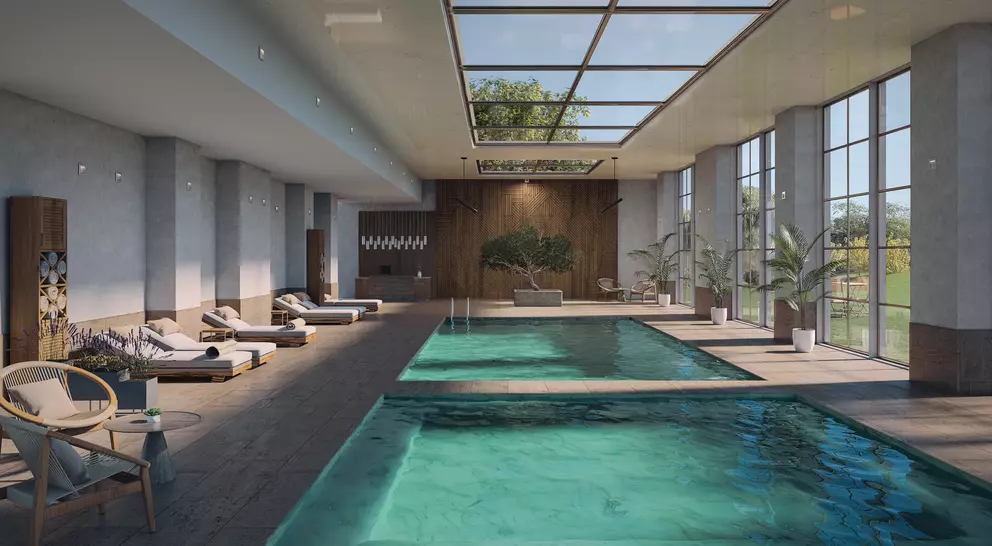
Collections

Ways to Travel

Themes

Collections
Frequently Asked Questions
Do I need a visa or special permits to enter Hungary?
What language is spoken locally? How widely is English understood in Hungary?
Hungarian (Magyar) is the official language. In Budapest and major sights, you’ll find plenty of English (and some German); in smaller towns, it drops off, so a few phrases—“köszönöm” (thank you), “szia” (hi/bye)—go a long way.
What are the must-see attractions in Hungary?
Start in Budapest: the Danube riverfront, Buda Castle Quarter, and Andrássy Avenue are UNESCO-listed and gorgeous by day or lit up at night. Soak in Széchenyi or Gellért thermal baths, tour Parliament, and ride scenic Tram 2 along the river. Beyond the capital, cruise the Danube Bend (Esztergom–Visegrád–Szentendre), swim or cycle around Lake Balaton, and sip dessert wines in Tokaj’s UNESCO-recognised vineyards. Goway features Budapest city stays and multi-city trips pairing Budapest with Vienna and Prague.
Is Hungary safe? What should I keep in mind while travelling there?
Hungary is generally safe; both Canada and the U.S. advise normal precautions. Watch for pickpockets on trams, the metro, and in busy districts, and be cautious of bar/club overcharging scams—check menus with prices and avoid “come-with-me” invitations. Use licensed taxis or apps, and keep ID on you. On public transit, ride with validated tickets to avoid on-the-spot fines.
What’s the best way to travel within Hungary?
In Budapest, the metro, trams, and buses are frequent and easy—validate single tickets (paper or digital) or use day passes. The 100E Airport Express runs 24/7 between BUD and the city centre. For intercity travel, Hungary’s MÁV-START trains link Budapest with towns like Eger, Pécs, Szeged, and Lake Balaton; tickets are available online and in the MÁV app. River cruises along the Danube are a relaxed way to see the scenery that Goway often builds into itineraries.
What Hungary cultural customs should I be aware of?
Thermal baths have rules: shower first, wear flip-flops around the complex, and use a swim cap in lap pools (not in the warm soaking pools). Bring or buy a towel on site. In restaurants, many bills include a 10–15% service charge; if not, locals tip about 5–10%—check your receipt before adding more. Dress modestly in churches, and keep voices low on transit.
What should I wear/pack for Hungary’s climate?
Winters are cold (often near or below freezing), so pack a warm coat, hat, gloves, and waterproof boots. Summers are hot and sunny—breathable layers, a hat, and light rain gear for sudden storms work well. Year-round, bring comfy walking shoes, a reusable water bottle, and bath gear (swimsuit, flip-flops, spare towel) for the spas. Power is 230V with Type C/F plugs—bring a suitable adapter for North American devices.
Unlock more by subscribing to our newsletter.
With our newsletter, you’ll get access to regular communications that inspire you and help you explore the world your way.
